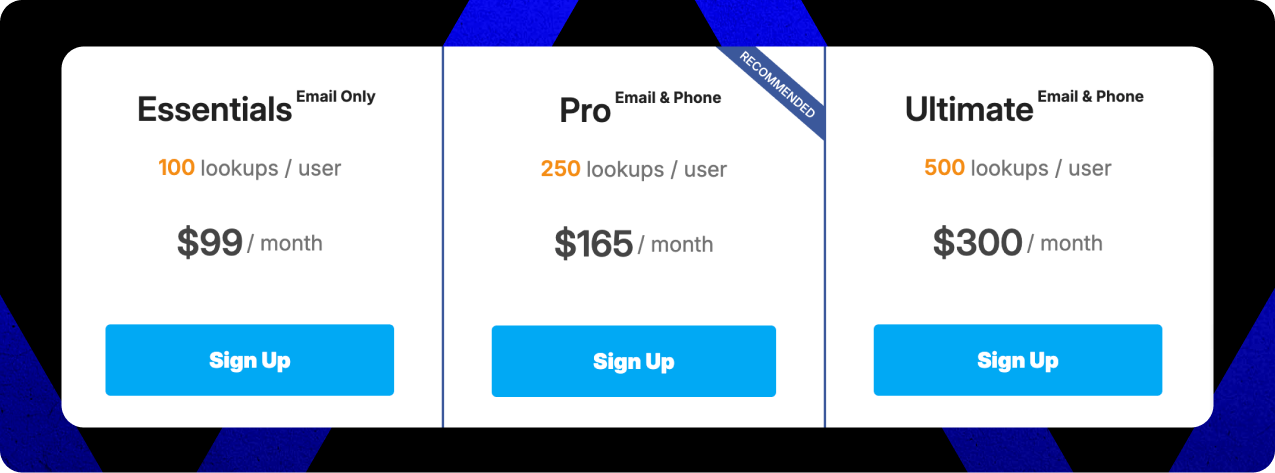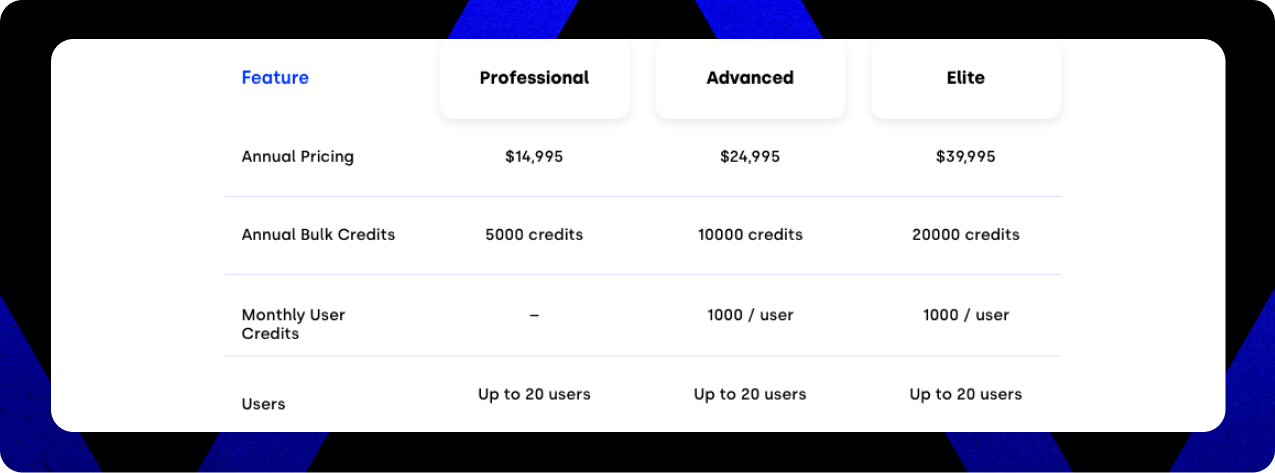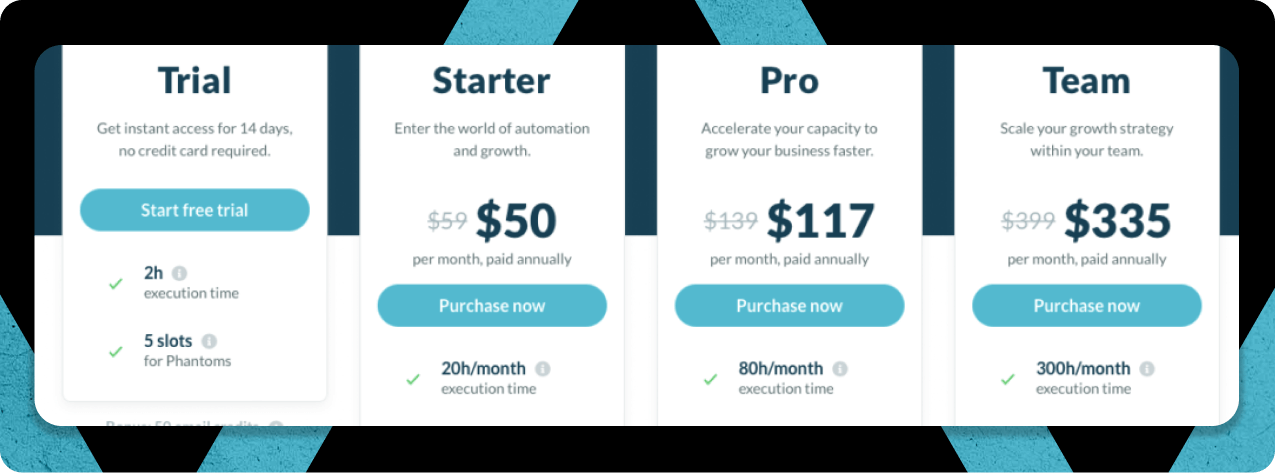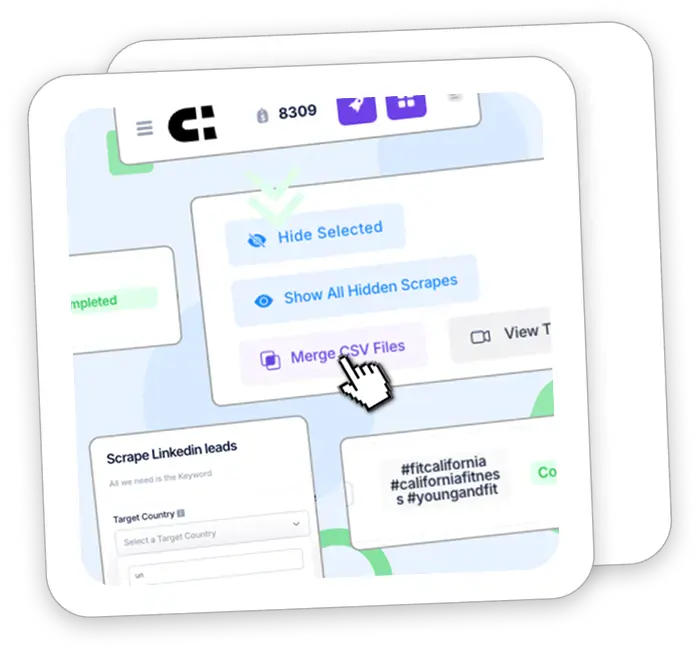RocketReach vs ZoomInfo: Which One Is Better for Small Sales Teams?
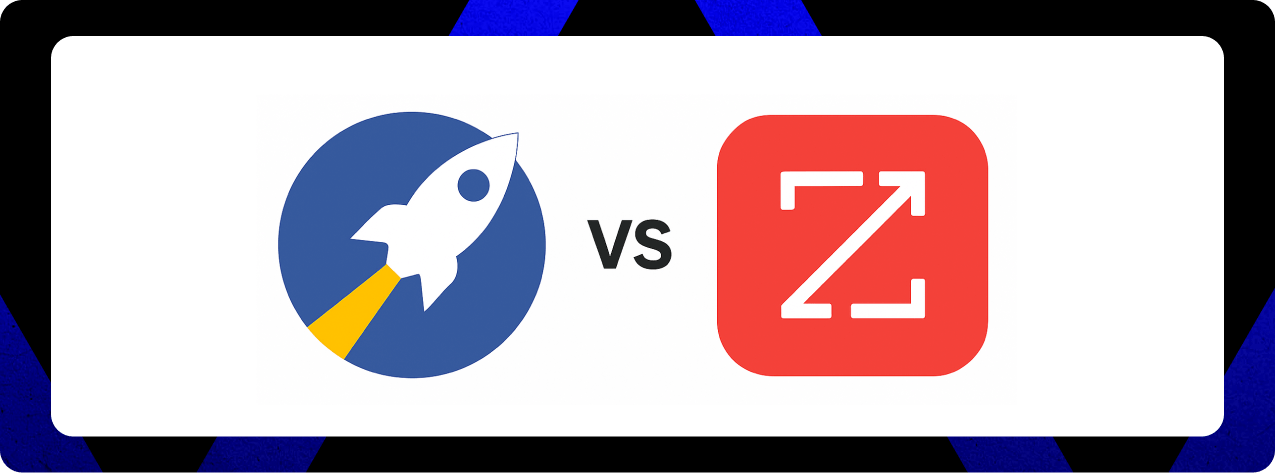
When it comes to RocketReach vs ZoomInfo, small teams face a classic David and Goliath scenario in the sales intelligence world. RocketReach boasts an impressive database of 700 million contact records, while ZoomInfo offers 260 million, a significant difference that impacts your prospecting potential. But size isn’t everything in this matchup.
In fact, for teams exploring more lightweight, no-code alternatives, tools like IGLeads’ email scraper are also entering the conversation, offering a radically simpler way to extract lead data without the enterprise price tag.
RocketReach users consistently rate its data accuracy at 81%, edging out ZoomInfo’s 77% accuracy rating. This might seem like a small difference, but when you’re running targeted outreach campaigns, those percentage points translate directly to deliverability and response rates.
The pricing gap, however, is anything but small. ZoomInfo typically demands $15,000+ annually for access to their platform, but RocketReach offers tiered pricing starting at just $70 per user monthly. For budget-conscious small teams, RocketReach even provides a free plan with 5 searches per month, something ZoomInfo simply doesn’t match.
What’s particularly interesting is that despite being more affordable, RocketReach is trusted by 95% of S&P 500 companies. Meanwhile, ZoomInfo counters with features like its Autopilot tool for automated list building and 135 million verified mobile numbers.
Looking at these tools side by side, which actually delivers better value for small teams with limited resources but ambitious growth targets? Let’s break down the real differences between these platforms to help you make the right choice for your specific prospecting needs.
It’s also worth mentioning that not every team needs a database as large as RocketReach or the automation depth of ZoomInfo. If your goal is to extract fresh, hyper-targeted leads without dealing with annual contracts, credits, or enterprise-level pricing, IGLeads offers a radically simple alternative. This no-code tool lets you scrape emails and phone numbers directly from platforms like LinkedIn, Google Maps, Instagram, TikTok, YouTube, and more. It is delivered as clean CSV files ready for outreach.
Unlike RocketReach and ZoomInfo, which rely on static databases, IGLeads pulls data in real time from the web. That means you’re always working with the most current information available. Plus, pricing is straightforward: no credits, no per-contact fees, and no long-term contracts, just a flat monthly rate starting at $59 ($49 if you do the annual subscription).
For small businesses, freelancers, and scrappy sales teams, IGLeads delivers a lightweight, budget-friendly lead generation solution built for speed and simplicity.
RocketReach vs ZoomInfo: Where the Real Differences Show Up
| Feature | 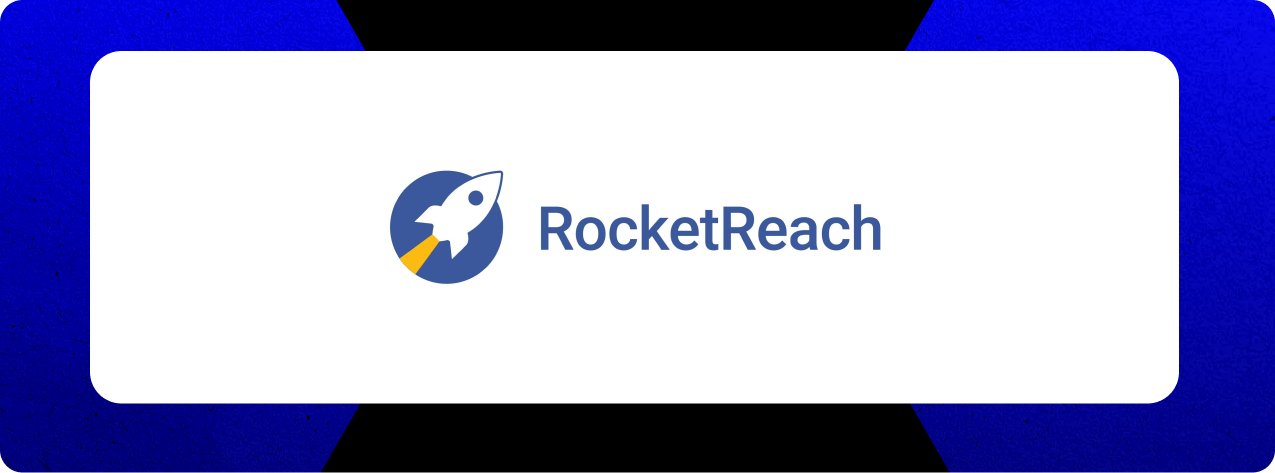 |
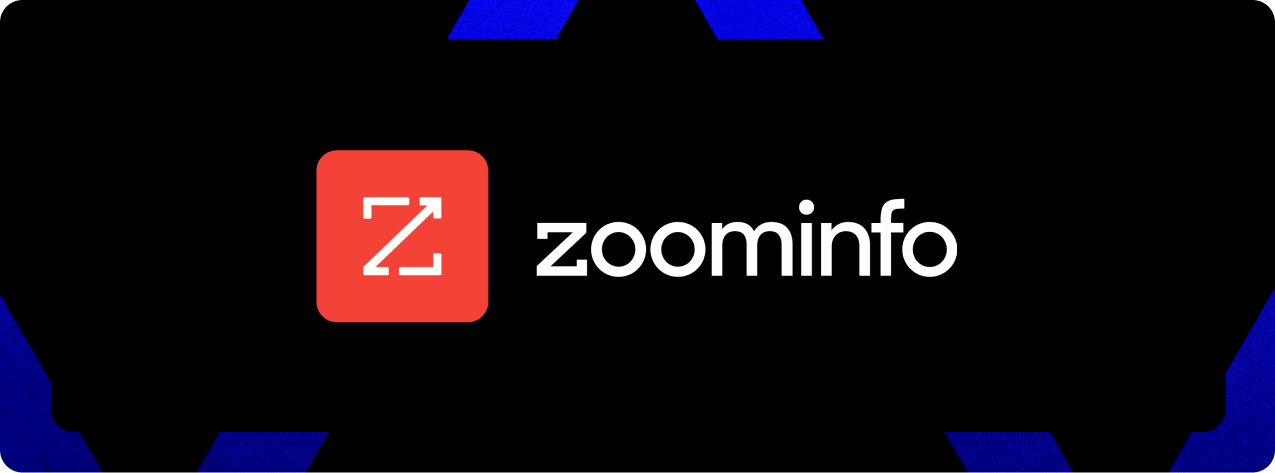 |
|---|---|---|
| Database Size | 700M+ contacts, 60M companies | 260M+ contacts, 100M+ companies |
| Email Coverage | High: confidence scores shown per contact | 150M+ emails, confidence-scored accuracy |
| Phone Numbers | Mixed (mobile & direct lines, varies by profile) | 135M+ verified direct dials, 50M+ mobile numbers |
| Data Collection Method | Public scraping + proprietary aggregation | Proprietary crawling + human verification |
| CRM Integration | Basic exports + API access | Deep integrations (Salesforce, HubSpot, Outreach) |
| Sales Automation | Built-in email outreach (RocketReach Messages) | Autopilot for automated lead generation workflows |
| AI & Insights | Confidence-based email scoring | AI Copilot, predictive lead scoring, advanced intent |
| Website Visitor Tracking | ❌ Not available | Advanced visitor tracking + intent data (Bombora) |
| Technographic & Firmographic | Basic company data | Deep firmographics, technographics, org charts |
| Lead Scoring | Manual filtering | Predictive scoring + buying intent signals |
| Global Coverage | Strong global database, wider than ZoomInfo | Stronger in the US, solid global presence |
| Data Update Frequency | Monthly updates (~170M records refreshed monthly) | Real-time signals + continuous updates |
| Pricing | Starts at $70/user/month, flexible plans | Starts ~$15,000/year, annual contracts required |
| Free Plan Available | ✅ Yes (5 free searches/month) | ❌ No |
| Best For | Freelancers, startups, small teams, SMBs | Mid-market & enterprise sales teams |
At the end of the day, RocketReach and ZoomInfo serve very different audiences. ZoomInfo is built for enterprise teams that need deep company insights, complex workflows, and advanced intent data, but it comes with a hefty price tag and a steep learning curve.
RocketReach, on the other hand, focuses on simplicity, affordability, and ease of use. It offers a massive database, transparent pricing, and quick onboarding, making it ideal for small teams, freelancers, and startups who just need reliable contact data without the complexity.
Platform Overview for Small Teams
Small teams often struggle with complex B2B tools that demand significant time and resources. Looking at the RocketReach vs ZoomInfo comparison through this lens reveals striking differences in how each platform approaches team accessibility.
RocketReach: Lightweight and fast onboarding
RocketReach takes a streamlined approach specifically designed with smaller operations in mind. Their Team Plan caters to small teams of 2-5 users, offering a streamlined billing solution and seamless integration capabilities. First thing to remember, the onboarding experience is remarkably straightforward, with clear guides for first-time users that help teams hit their goals quickly.
The interface prioritizes simplicity over complexity, with most users praising RocketReach’s intuitive design. In fact, G2 reviewers rate RocketReach’s ease of use at 9.1 out of 10, significantly higher than industry averages. For small teams without dedicated training resources, this translates to minimal downtime between signup and productive usage.
Most compelling evidence of RocketReach’s small-team focus comes from its quick-start approach. Users can immediately access helpful resources like “Best Ways to Search” and “Understanding Your Results” without wading through extensive documentation.
ZoomInfo: Enterprise-grade with steep learning curve
ZoomInfo positions itself as an enterprise powerhouse with comprehensive features but consequently demands more from its users. The platform’s complex interface presents a substantial hurdle for small teams. Multiple sources confirm that new users face a steep learning curve, with some reporting “it takes hours to set up a new account”.
Additionally, ZoomInfo’s onboarding process itself illustrates this complexity. You can’t simply try the platform independently. Their version of a “free trial” requires participation in a live demo with a sales representative who walks users through the platform. This requirement exists precisely because “its platform is not intuitive enough for self-guided learning”.
Which suits small teams better?
For resource-constrained small businesses, the choice becomes increasingly clear. RocketReach’s simple, list-based interface makes it “ideal for small teams and solo sellers”, allowing for quick integration into existing workflows with minimal learning time. In contrast, ZoomInfo requires “a significant ramp-up” before users can effectively navigate its capabilities.
Support structures also differ fundamentally. RocketReach offers standard email support, whereas ZoomInfo provides dedicated account managers better suited for larger organizations with complex needs. Essentially, RocketReach delivers a 4.6 overall user rating compared to ZoomInfo’s 4.1, suggesting greater satisfaction among its typically smaller user base.
Feature Comparison: Prospecting and Automation
The fundamental difference between these prospecting powerhouses lies in their specialized feature sets. Let’s examine how they stack up in key areas that matter most for small sales teams.
RocketReach vs ZoomInfo: Prospecting & Automation Feature Comparison
| Feature |  |
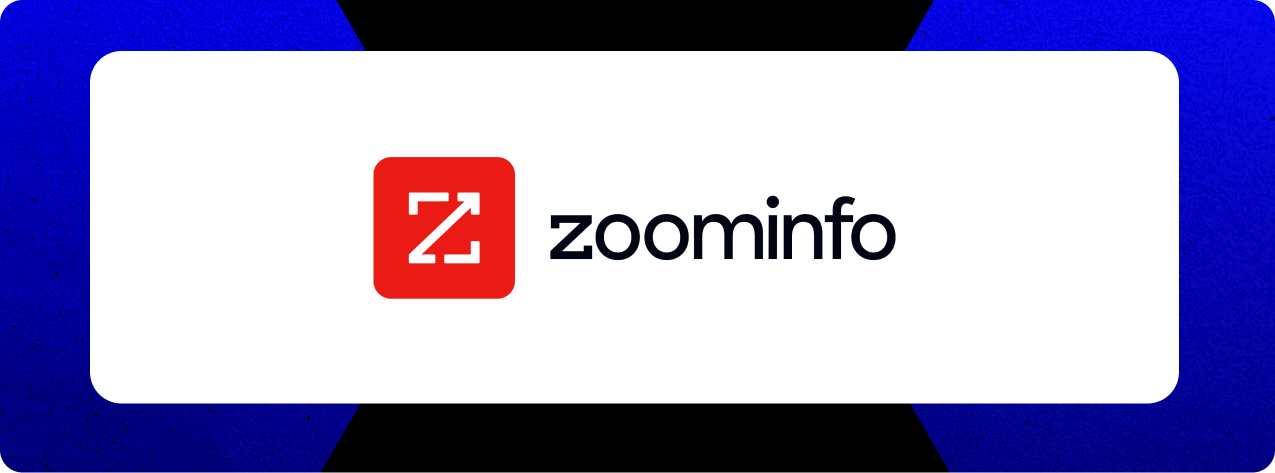 |
|---|---|---|
| Search Filters | Boolean logic across name, location, and role. AND between categories, OR within same category. Effective for simple prospecting. |
Advanced Boolean filters across 7+ fields: industry, job title, company size, location, revenue, funding type, and more. Stronger for complex ICP targeting. |
| Email Outreach | Built-in email tool (“Messages”) for bulk sending with personalization. Tracks opens, clicks, replies, and bounces. |
Deep email outreach integration with CRM and sales engagement tools. Send emails or add leads to sequences directly from LinkedIn or company websites. |
| Chrome Extension | Works on LinkedIn, AngelList, Crunchbase, Google. Look up and save contacts directly from web pages. |
Works on LinkedIn and company websites. Export directly to Salesforce, Outreach, HubSpot, and 70+ integrations. |
| Automation Tools | Autopilot (Beta) for automatic list building based on saved criteria. Continuously adds matching leads over time. |
SalesOS with Autopilot + predictive AI. Automates list building, lead scoring, and identifies accounts with high buying intent. |
Search Filters: Boolean logic and ICP targeting
Both platforms employ Boolean search logic, yet they implement it differently. RocketReach supports Boolean operators across name, location, and role filters – using AND between different categories and OR within the same category. This makes it particularly effective for straightforward prospecting scenarios.
Alternatively, ZoomInfo offers more advanced filtering capabilities with Boolean operators supported across seven different filters. The platform allows for highly specific searches based on industry, job title, company size, location, revenue, and funding type – making it substantially more powerful for teams with clearly defined ICPs.
Email Outreach: Bulk sending vs personalization
RocketReach’s recently added Messages feature enables bulk email sending while maintaining personalization. The system can create contextual emails for each lead, automatically send them, and track performance metrics including opens, clicks, replies, and bounces.
Conversely, ZoomInfo’s email capabilities integrate more deeply with your existing tech stack. Their system allows you to identify leads on LinkedIn or company websites and seamlessly send prospects an email or add them to automated sequences without leaving the platform. For teams focused on personalization at scale, ZoomInfo offers more robust workflow integration.
Chrome Extensions: LinkedIn and web scraping
RocketReach’s Chrome extension works across multiple platforms including LinkedIn, AngelList, Crunchbase, and Google. Users can immediately look up contacts and add prospects to prospect lists directly from these sites, streamlining the research process significantly.
ZoomInfo’s extension similarly functions across LinkedIn and company websites but adds deeper integration with existing CRM and sales engagement tools. Notably, it allows users to export searches directly to Salesforce, Outreach, HubSpot, or any of their 70+ compatible integrations with a single click.
Automation Tools: Autopilot vs SalesOS workflows
RocketReach’s Autopilot feature (still in beta) automates prospect list building by continuously adding contacts that match your specified criteria. You define search parameters and cap limits, then the system delivers enriched lists automatically.
ZoomInfo counters with its comprehensive SalesOS workflows, including the powerful Autopilot feature that automatically appends contacts based on custom criteria. The platform goes further by incorporating predictive AI to identify customer interests and priorities, effectively surfacing accounts most likely to convert.
Data Coverage and Accuracy
The database battle between these two prospecting giants reveals stark differences in both size and quality metrics – a crucial consideration for small teams with limited credits to spend.
RocketReach vs ZoomInfo: Data Coverage & Accuracy Compared
| Category |  |
 |
|---|---|---|
| Database Size | 700M+ contacts 60M+ companies |
260M+ contacts 100M+ companies |
| Update Frequency | Monthly updates (~170M records refreshed per month) | Real-time AI-powered crawling + continuous updates |
| Email Verification | Confidence scores shown per contact Green indicators for verified emails and phones |
Behind-the-scenes verification powered by Neverbounce and AI No visible confidence indicators for users |
| Accuracy Ratings | 85%+ overall accuracy (G2) Email accuracy reported up to 97% |
77% overall accuracy (G2) |
| Data Validation Method | Aggregates from thousands of sources Transparency via confidence scores |
AI-powered validation + human verification Uses Neverbounce for email checks |
Database Size: 700M vs 260M contacts
RocketReach maintains a substantially larger database with 700 million professional profiles spanning 60 million companies. ZoomInfo, although smaller, still offers an impressive 260 million individual profiles alongside 100 million company records. This size gap means RocketReach potentially gives you access to nearly three times more potential prospects – a significant advantage for teams targeting niche industries or roles.
Update Frequency: Monthly vs real-time AI refresh
Upon closer inspection, both platforms take different approaches to keeping data fresh. RocketReach streams updates from thousands of sources, processing approximately 170 million updates monthly. ZoomInfo utilizes a combination of AI-powered validation with human verification, continuously crawling the web for fresh information. Generally speaking, B2B data decays by 2.1% monthly, meaning almost 23% of exported leads could become outdated within a year – making update frequency a critical factor.
Email Verification: Confidence scores vs Neverbounce
RocketReach excels in verification transparency, showing confidence scores for each contact. Their system uses visual indicators like green icons for verified email addresses and phone numbers. According to user feedback, “they’ll tell you their confidence level in various email addresses they produce, and you can take it from there”.
In contrast, ZoomInfo employs Neverbounce and other automated validation tools to maintain data integrity. Their approach focuses more on behind-the-scenes verification rather than providing visible confidence metrics to users.
Accuracy Ratings: 85%+ vs 77% (G2 data)
The accuracy gap between these platforms is noteworthy for teams running targeted campaigns. RocketReach claims an overall accuracy rate of 85%+, with some sources reporting email accuracy as high as 97%. Meanwhile, ZoomInfo users rate its accuracy at 77% according to G2 data.
For small teams where every outreach counts, this 8-percentage-point difference directly impacts deliverability rates and campaign performance. Teams must balance ZoomInfo’s deeper company insights against RocketReach’s higher contact accuracy.
Pricing Breakdown for Small Teams
Price tags often reveal the true target audience for B2B tools. The financial gap between these platforms speaks volumes about their intended users.
RocketReach vs ZoomInfo: Pricing Comparison
| Category |  |
 |
|---|---|---|
| Starting Price | $70/month (Essentials) 80 lookups per month |
$14,995/year (Professional) 5,000 bulk credits (up to 3 users) |
| Mid-Tier Plan | Pro: $140-165/month 200 lookups |
Advanced: $24,995/year |
| Top-Tier Plan | Ultimate: $300/month 500 lookups |
Elite: $39,995/year |
| Team Pricing | Team Pro: $83/user/month (annual) Team Ultimate: $207/user/month (annual) For teams of 2-5 users |
Team pricing included in plans (starts with 3 users) Costs scale with higher tiers |
| Contract Type | Monthly or annual No long-term commitment required |
Annual contracts only Prepaid commitment required |
| Free Trial | ✅ Yes. 5 free lookups (no credit card) | ❌ No. Demo + 48-hour trial with 200 credits |
| Pricing Transparency | Public pricing listed on website | No public pricing Requires custom quote from sales |
| Best For | Freelancers, startups, SMBs Small teams needing affordability and flexibility |
Enterprise sales teams Organizations with large budgets and complex workflows |
RocketReach Plans: Essentials to Ultimate ($70–$300/mo)
RocketReach offers a pricing structure tailored for growing teams. The Essentials plan starts at $70 per month with 80 monthly lookups. For teams needing more horsepower, the Pro plan provides 200 monthly lookups at $140-165 per month. The Ultimate plan tops out at $300 monthly with 500 lookups.
What makes RocketReach particularly attractive for small operations? Their team plans accommodate 2-5 users with streamlined invoicing and billing solutions. Team Pro costs $83 per user monthly (billed annually), while Team Ultimate runs $207 per user monthly.
ZoomInfo Pricing: $15K+ annual commitment
In sharp contrast, ZoomInfo positions itself firmly in enterprise territory. Their Professional plan starts at $14,995 annually with 5,000 bulk credits for up to three users. As your needs grow, so does the price. The Advanced plan jumps to $24,995 yearly, with the Elite plan reaching $39,995 annually. Click here for more details on ZoomInfo’s pricing.
Unlike RocketReach’s flexible monthly options, ZoomInfo requires annual contracts exclusively. This represents a substantial barrier for cash-conscious startups and small businesses.
Free Trials: 5 lookups vs 2-day trial
Before committing, both platforms offer free sampling options. RocketReach provides a no-credit-card-required free account with 5 monthly lookups. On the contrary, ZoomInfo’s trial process involves scheduling a demo with a sales representative, followed by a brief 48-hour window with 200 bulk credits.
Best Value for SMBs: Cost vs features tradeoff
Ultimately, the pricing disparity reflects fundamentally different approaches. RocketReach focuses on accessibility: “the prices remain unmatched! You get a lot of value for your money”. Meanwhile, ZoomInfo targets larger organizations with deeper pockets seeking comprehensive intelligence.
For budget-conscious small teams looking for alternatives without breaking the bank, IGLeads offers a lightweight solution with transparent pricing that bridges the gap between affordability and functionality.
User Experience and Support
The interface you interact with daily shapes your team’s productivity more than most realize. Both platforms take drastically different approaches to user experience, with implications for small team adoption.
RocketReach vs ZoomInfo: User Experience & Support Comparison
| Category |  |
 |
|---|---|---|
| Ease of Use | Simple, intuitive interface Score: 9.1/10 (G2) Quick searches, minimal clutter |
Feature-rich but complex UI Score: 8.8/10 (G2) Powerful but overwhelming for new users |
| Learning Curve | Minimal onboarding Fast adoption into workflows “Easy to use and works better than the competition” |
Significant ramp-up required Mandatory demos before trial access Complex setup for first-time users |
| Customer Support | Email support + knowledge base Score: 8.5/10 (G2) Self-service focused |
Dedicated account managers Extensive onboarding + training Score: 9.0/10 (G2) |
| User Ratings | 4.6/5 (G2) Smaller user base, higher satisfaction |
4.1/5 (G2) Larger user base, but lower satisfaction overall |
| Best For | Small teams, startups, freelancers Users who value simplicity & quick setup |
Mid-market & enterprise teams Users who need advanced workflows and dedicated support |
Ease of Use: Simple UI vs feature-rich complexity
RocketReach prioritizes simplicity with an intuitive interface scoring 9.1/10 for ease of use. Its straightforward navigation enables quick searches without overwhelming users. The dashboard layout earns praise from users who find it “easy to use and works better than the competition”.
ZoomInfo, though scoring a respectable 8.8/10 for usability, presents a more complex interface packed with customization options. This feature-rich environment supports advanced workflows but often overwhelms first-time users.
Customer Support: Email vs dedicated account manager
Support structures reveal each platform’s target audience. RocketReach offers a dedicated support email channel alongside tutorials and a comprehensive knowledge base. This approach scores 8.5/10 for support quality. It is sufficient for self-sufficient teams.
Alternatively, ZoomInfo provides dedicated account managers and extensive training materials, earning a 9.0/10 support rating. This higher-touch approach benefits teams requiring personalized guidance but may be overkill for smaller operations.
Learning Curve: Minimal vs extensive onboarding
RocketReach enables “rapid integration into existing workflows with minimal learning time”. New users typically become productive immediately, a critical advantage for resource-constrained teams.
In contrast, ZoomInfo requires “a significant ramp-up” before users effectively navigate its capabilities. The interface complexity necessitates substantial onboarding investment, reflected in their requirement that prospects schedule demos rather than self-explore.
User Ratings: 4.6 (RocketReach) vs 4.1 (ZoomInfo)
Overall satisfaction metrics tell a compelling story. RocketReach maintains a 4.6-star rating across 8 reviews, indicating stronger user satisfaction despite fewer total reviews.
ZoomInfo averages 4.1 stars from 432 reviews, arespectable but noticeably lower. This difference suggests smaller teams find RocketReach’s streamlined approach more aligned with their needs and resources.
RocketReach vs ZoomInfo by the Numbers: What Really Matters
| Feature |  |
 |
|---|---|---|
| Database Size | 700 million contacts | 260 million contacts |
| Data Accuracy | 81-85% | 77% |
| Starting Price | $70/month | $15,000+/year |
| Free Trial | 5 monthly lookups (no credit card) | 48-hour trial (requires demo) |
| Ease of Use Rating | 9.1/10 | 8.8/10 |
| Overall User Rating | 4.6/5 | 4.1/5 |
| Data Updates | 170 million updates monthly | Real-time AI refresh |
If you still seek more information about RocketReach and ZoomInfo, we have written reviews about both platforms. The 2025 RocketReach review can be found here. And click here to read the up to date ZoomInfo review.
IGLeads: The Simple, No-Nonsense Alternative
Feeling boxed in by RocketReach’s lookup limits or ZoomInfo’s $15K+ contracts? You’re not alone. IGLeads exists for scrappy teams who just want leads, without paying for bloated databases or spending weeks learning a complicated platform.
While RocketReach and ZoomInfo rely on static databases, IGLeads flips the model. It scrapes fresh leads from platforms your competitors aren’t touching: Instagram, LinkedIn, Google Maps, TikTok, YouTube, Facebook, and Twitter. No credits. No coding. No stress.
What Makes IGLeads Different?
- ✅ No credit system: Pay for usage tiers, not individual leads.
- ✅ Cloud-based scraping: Run jobs without keeping your browser open.
- ✅ Ridiculously simple: Pick your platform, set filters, hit “scrape.”
- ✅ Rich lead profiles: Emails, phone numbers, names, usernames, profile URLs, and more (when available). Delivered in CSV format within hours.
- ✅ Fast delivery: Results hit your inbox in a few hours.
- ✅ Budget-friendly: Plans start at $59/month for 10,000 emails, dropping to $49/month if billed annually.
IGLeads is purpose-built for freelancers, agencies, consultants, real estate pros, and local businesses who need leads fast, without getting locked into complex software or enterprise pricing.
Test it out for free and see how easy lead gen can actually be.
“I recently started using igleads.io and this has been a gamechanger for me. I can scrape leads, gather intel and be strategic in my lead list approach!” – Michael Devous
Lead Generation Smackdown: IGLeads vs RocketReach vs ZoomInfo
| Feature | 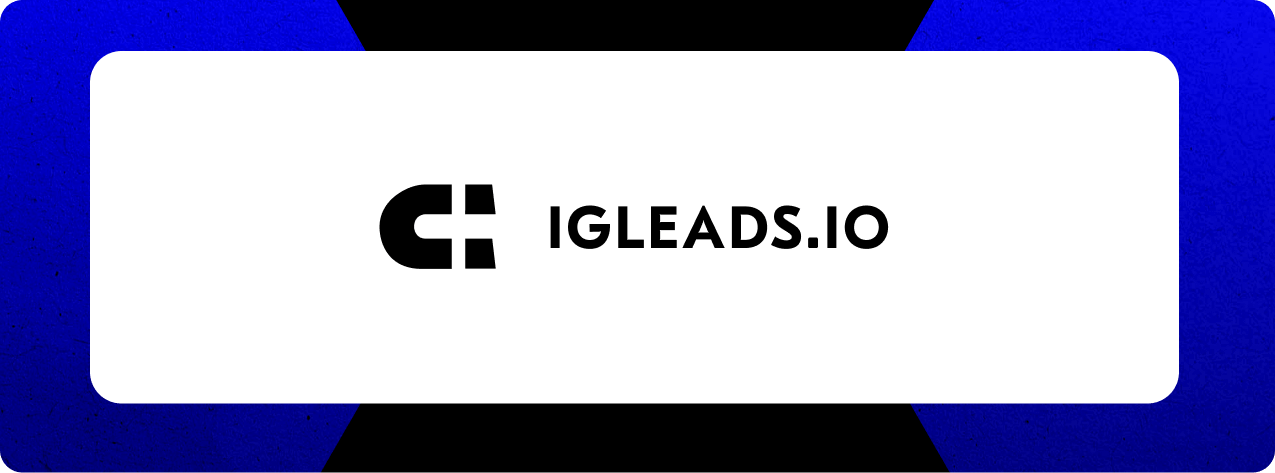 |
 |
 |
|---|---|---|---|
| Data Sources | Instagram, Google Maps, LinkedIn, YouTube, Twitter, Facebook, TikTok | Aggregated public web data + proprietary sources | Proprietary crawling + human-verified databases |
| Database Size | Real-time scraping: unlimited fresh leads | 700M contacts, 60M companies | 260M contacts, 100M companies |
| Pricing Transparency | ✅ Transparent: from $59/month | ✅ Transparent: from $70/month | ❌ Hidden: sales call required |
| Contract Type | Monthly or annual: no lock-in | Monthly or annual: flexible | Annual only: locked contracts |
| Lead Types | Local businesses, influencers, real estate, service providers, creators | B2B professionals, decision-makers, contacts across industries | Enterprise-level B2B decision-makers, Fortune 500 accounts |
| Outreach Tools | ❌ None: data only | ✅ Built-in email outreach (RocketReach Messages) | ❌ Limited: requires 3rd-party tools for sequences |
| Intent Data & AI | ❌ No | ❌ No AI intent: simple data-focused | ✅ Advanced: AI Copilot, predictive intent scoring |
| Credit System | ❌ None: scrape as much as your plan allows | ✅ Yes: lookup limits based on plan | ✅ Yes: complex, contract-based credit system |
| Best For | Agencies, freelancers, real estate, marketers, creators, local businesses | Startups, SMBs, small sales teams needing affordability + simplicity | Enterprises, large sales teams, organizations needing deep B2B insights |
Still stuck deciding? Here’s the truth: While RocketReach and ZoomInfo battle over databases, credits, and enterprise contracts, IGLeads lets you skip the complexity entirely. Whether you’re targeting local businesses, influencers, real estate owners, or niche markets, IGLeads delivers fresh, real-time data from platforms your competitors are ignoring.
No contracts. No hidden fees. No sales calls. Just fast, straightforward lead generation when you need it. Sign up for free and see how simple lead gen can actually be.
Related to rocketreach
- 16 RocketReach Alternatives Worth Trying in 2025
- RocketReach Pricing : Is It Worth It In 2025?
- RocketReach Chrome Extension: Setup, How to use and Alternatives
- The 2025 Rocketreach Review: What You Need to Know Before You Buy
Related to Zoominfo
- ZoomInfo Review: What It Does, Who It's For, and What Users Say
- Lusha vs ZoomInfo in 2025: Which Sales Tool Should You Choose?
- UpLead vs ZoomInfo: Which Sales Tool Is Better for Your Business?
- Seamless.ai vs ZoomInfo: Which Sales Tool Saves You More in 2025?
- Apollo.io vs ZoomInfo: Which sales tool wins on pricing, data, and features in 2025?
- Looking for a ZoomInfo Alternative? Here Are the Top Options
- ZoomInfo Extension Overview – Features, Drawbacks, and Alternatives
- ZoomInfo Pricing: How Much Will It Cost You?
Frequently Asked Questions
RocketReach is generally more suitable for small sales teams due to its simpler interface, lower pricing, and faster onboarding process. It offers a more accessible solution for teams with limited resources and training time.
RocketReach boasts a larger database with 700 million contacts, while ZoomInfo offers 260 million. However, ZoomInfo provides more comprehensive company data and uses AI for real-time updates, whereas RocketReach updates monthly.
RocketReach offers more flexible pricing starting at $70 per month, with plans tailored for small teams. ZoomInfo, on the other hand, requires a significant annual commitment starting at around $15,000, which is more suited for larger enterprises.
RocketReach claims a higher data accuracy rate of 85%+ compared to ZoomInfo’s user-reported accuracy of 77%. This difference can significantly impact the success of outreach campaigns and email deliverability.
RocketReach offers an Autopilot feature (in beta) for automated list building based on specified criteria. ZoomInfo provides more advanced automation through its SalesOS workflows, including predictive AI to identify high-potential accounts.
